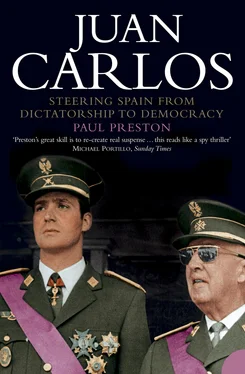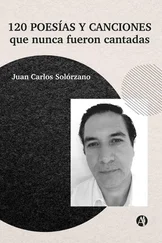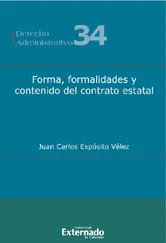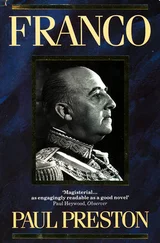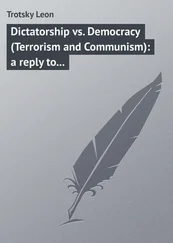Jaime Carvajal later came to the conclusion that their headmaster was ‘a key figure in the formation of Don Juan Carlos’s personality, after his father or even at the same level as Don Juan’. It was inevitable that, having been sent away by his own father, the boy would latch on to an appropriate father figure. Garrido had the sensitivity to realize that the Prince would be disorientated and confused after the brusque separation from his family. Accordingly, he treated Juan Carlos with real affection. Each night, he would check that he was comfortable, make a sign of the cross on his forehead and, after asking if he needed anything, turn out the light. He was quickly made aware of the sadness that the boy felt as a result of his situation. His father had given him a letter to hand over to Garrido. In it, he gave the teacher instructions about how he wanted his son to be educated. They read it together and, when they reached the part in which Don Juan spoke of his son’s responsibilities as representative of the family, tears appeared in the Prince’s eyes. It was a brutal reminder that his official position as Prince took precedent over the needs of a little boy trying to be brave. Garrido often noticed Juanito gazing sadly into the distance and then, as if realizing that he had no right to nostalgia, suddenly jumping up and riding his bike or taking out his frustrations on a football.
The Prince always endeavoured to hide his feelings but Garrido later recalled how much Juan Carlos enjoyed reading Platero y yo by Juan Ramón Jiménez, carrying the book with him everywhere he went during his first months at the school. One evening, the boy recited by heart a passage from the book as they watched the sunset. He startled Garrido by saying, ‘Mummy is on the other side.’ Garrido was moved and grew very fond of him, commenting years later, This child radiated affection despite the fact that they only ever spoke to him about duties and responsibilities.’ Garrido took particular interest in ensuring that the Prince’s relations with his classmates and with servants and gardeners were as natural as possible. In 1969, when Juan Carlos was named royal successor by Franco, he wrote to Garrido the following note: ‘I remember you with the greatest affection and every day allows me better to measure what I owe to you. You have helped me a lot with your example and your advice. And the counsels you gave to me were as good as they were numerous.’ 4
In contrast, Juan Carlos would later admit to an aversion for the dour Father Ignacio de Zulueta, an aristocratic Basque priest who visited Las Jarillas three times a week to supervise the children’s ethical and religious education. Tall and gaunt as if he had stepped down from an El Greco canvas, Zulueta was a forbidding figure. He had been recommended to Don Juan by the Duque de Sotomayor and Danvila because he represented the most conservative strand of Francoist thinking. Deeply reactionary, obsessed with royal protocol, Zulueta insisted on the entire class calling the young Prince by the title of ‘Your Highness’. 5 Juan Carlos, desperate to be treated as an equal by his classmates, preferred that they call him ‘Juanito’ and used the informal ‘ tú ’ form of address. Accordingly, Zulueta’s instruction was usually ignored by the boys. 6
Juan Carlos’s classmates at Las Jarillas remember him as a fun-loving child, who worked hard at his academic assignments, was an average student, excelled at sports, and was open and generous. 7 As a result, Juan Carlos made solid friendships at his new school. This was underlined by the fact that none of the boys from Las Jarillas would later try to exploit their relationship with the King. It was also shown in the warmth with which they still spoke of Juan Carlos, 50 years later. In 1998, on Juan Carlos’s 60th birthday, a Spanish magazine interviewed the King’s old school friends. Alonso Álvarez de Toledo recalled how, although they were aware of Juan Carlos’s importance at the time (if only because he often received illustrious visitors), they soon accepted him as one of the gang. Jaime Carvajal y Urquijo agreed, describing the young Juan Carlos as ‘an ordinary kid, joyful, naughty, with a heart of gold, a wonderful companion’. Juan Carlos’s cousin, Carlos de Borbón-Dos-Sicilias, recalled being surprised at the time by Juan Carlos’s acute intuition and by his already highly developed sense of responsibility. He also recalled how little spare time they had at Las Jarillas, spending, as they did, most of their hours studying or playing sports. According to Carlos de Borbón, Juan Carlos and Jaime Carvajal were the best sportsmen, the latter being the most academically gifted of the group. 8
The day at Las Jarillas began with daily mass at which Juan Carlos often served as an altar boy. This was followed by the ritual raising of the Spanish flag. Although classes followed the general Spanish curriculum, there was – as might have been expected of a school whose teachers were all fervent monarchists – a degree of laxity when it came to Francoist political indoctrination. Fernando Falcó y Fernández de Córdoba remembered that, when they sat the exam for what the regime called ‘ Formación del Espíritu Nacional ’ (Formation of the National Spirit), none of the class knew the Falangist hymn ‘ Cara al sol ’ by heart. To avoid the scandal that this might provoke in Franco’s Spain, the exam question was magically replaced by another. The children were also given the opportunity to experience some aspects of ordinary life at Las Jarillas. José Luis Leal Maldonado recalled that the Las Jarillas football team always lost to the visiting team of the Las Palomas school. Juan José Macaya recalled a day when the boys discovered a hen house in the grounds of the estate. In spite of – or perhaps in reaction to – the discipline enforced at the school, they proceeded to kill several hens. 9
In spite of Juan Carlos’s apparent contentment, certain aspects of his new life in Spain must have been difficult. Outside monarchist circles, his arrival in Spain had been greeted by some with a wave of ill feeling. With the exception of the monarchist daily ABC , the controlled press had marked his arrival with a series of articles featuring malicious and laconic comments about the young Prince, as well as carefully selected, mostly blurry photographs which made him look devious and sly. 10 Rumours were spread to the effect that the young Prince was a sadist who watered the plants at Las Jarillas with lime in order to kill them. 11 Already at the age of ten, he was obliged to devote many hours to replying to the many cards and letters that arrived for him. He also served an apprenticeship in the boring business of official audiences for the endless streams of monarchists who, after securing the appropriate permission from the Duque de Sotomayor, visited him. Among them was the ineffable General José Millán Astray who arrived accompanied by his permanent escort of Legionnaires. He startled the Prince by shouting, ‘Highness! May the Virgin protect us.’ The tedium was mitigated by the obligatory gifts which ranged from boxes of chocolates to a magnificent electric car. 12
A week before the end of his first term, Juan Carlos was visited by the monarchist General Antonio Aranda, a Nationalist hero of the Civil War. Aranda took notes of their conversation: ‘the boy is very likeable, lively and intelligent, I was utterly charmed by him since I thought he would be more sullen and he’s quite the opposite. He asked me about the Army and aeroplanes. This is what excites him and when I explained things to him in detail, he was really pleased. Just then, from the downstairs room where we were talking, we spotted a group of overdressed ladies and gentlemen arriving and the Prince, with total spontaneity and frankness, burst out, “What a drag! They’re coming to interrupt us! Weren’t you really having a good time telling me all this stuff? I know I was enjoying listening to you. Why don’t those people just go away?”’ The Duque de Sotomayor glided in to inform the Prince that he had to receive these new visitors. It was indicative of the ambiguous loyalties of the supposed supporters of Don Juan that Aranda’s notes soon found their way onto Franco’s desk. 13
Читать дальше
